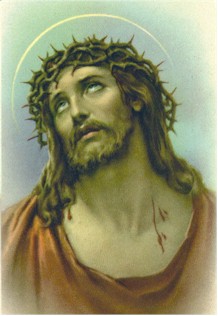Priest's Saturday
by VP
Posted on Saturday January 22, 2022 at 03:00AM in Prayers

Divine Savior, Jesus Christ, Who hast
entrusted the whole work of Thy redemption, the welfare and salvation of
the world, to priests as Thy representatives, through the hands of Thy
most holy Mother and for the sanctification of Thy priests and
candidates for the priesthood I offer Thee this present day wholly and
entirely, with all its prayers, works, sacrifices, joys, and sorrows.
Give us truly holy priests who, inflamed with the fire of Thy divine love,
seek nothing but Thy greater glory and the salvation of our souls.
And thou, Mary, good Mother of priests, protect all priests in the
dangers of their holy vocation and, with the loving hand of a Mother,
also lead back to the Good Shepherd those poor priests who have become
unfaithful to their exalted vocation and have gone astray.
Source: Cure d'Ars Prayer Group
